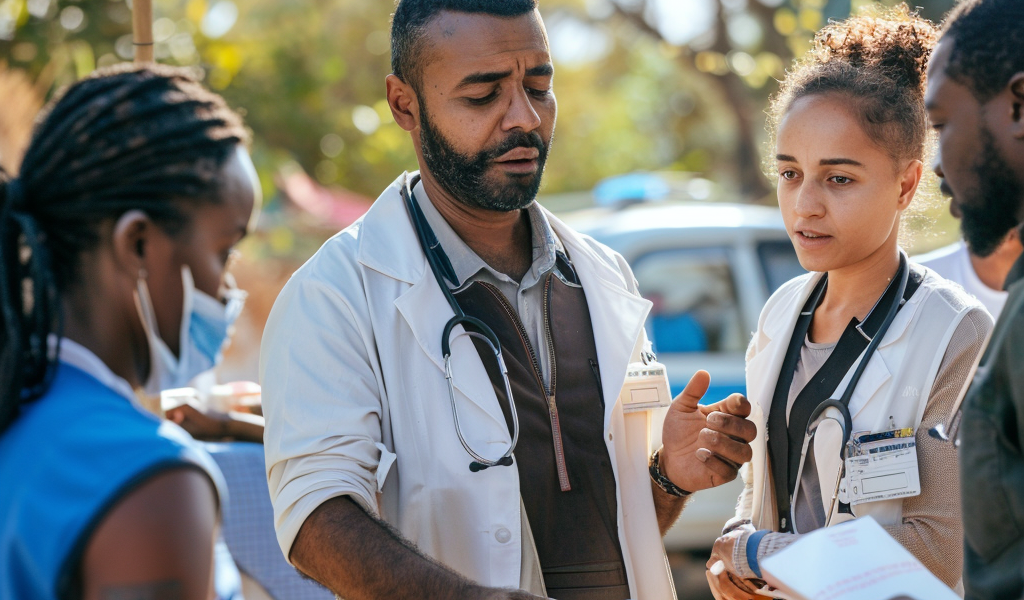In a significant development in global health response, the World Health Organization (WHO) and its partners have activated the Global Health Emergency Corps (GHEC) for the first time, aimed at tackling the recent mpox outbreaks affecting numerous countries. This initiative, launched in October 2024, marks a pivotal moment in international health collaboration, designed to enhance the support provided to nations grappling with health emergencies.
The GHEC serves as a coalition of professionals dedicated to bolstering responses to health crises. It acts as a collaborative platform for countries and health emergency networks, focusing on strengthening the health emergency workforce, deploying experts rapidly, and facilitating the networking of technical leaders. Established in 2023, the GHEC was a direct response to the lessons learned from the COVID-19 pandemic, emphasizing the necessity for streamlined efforts among existing health networks to ensure more effective support to affected nations.
Dr. Mike Ryan, Executive Director of WHO’s Health Emergencies Programme, emphasized the importance of this initiative, stating, “WHO and partners are supporting the government of the Democratic Republic of the Congo and other countries to implement an integrated approach to case detection, contact tracing, targeted vaccination, clinical and home care, infection prevention and control, community engagement and mobilization, and specialized logistical support.” He further noted that the GHEC enhances the capacity of effective responders at both national and regional levels, fostering collaboration to successfully interrupt transmission of the virus and alleviate suffering.
The activation of the GHEC follows the declaration of mpox as a public health emergency of international concern by WHO Director-General Dr. Tedros Adhanom Ghebreyesus on August 14, 2024. This declaration was prompted by the alarming rise in mpox cases across 18 African countries this year, coupled with the rapid spread of clade 1b mpox to at least two additional regions, raising fears of further transmission.
To effectively address the outbreak, the GHEC is collaborating with the International Association of National Public Health Institutes to assess the emergency workforce capacities in eight countries impacted by the mpox outbreak, including the Democratic Republic of the Congo and Burundi—identified as the two most severely affected nations. Preliminary assessments have revealed 22 critical areas requiring enhancement, such as epidemiology and surveillance, laboratory capabilities, infection prevention and control measures, risk communication, and community engagement strategies.
In the Democratic Republic of the Congo, health cluster partners have united to bolster the coordination efforts established by the Ministry of Health. This collaboration is spearheaded by the public health emergency operations center, which is crucial for managing the outbreak effectively.
As of October 17, 2024, WHO has successfully deployed 56 experts to the affected regions. This deployment includes both WHO staff and specialists mobilized through various health networks, showcasing a concerted effort to provide immediate assistance where it is most needed.
The GHEC initiative highlights the importance of international cooperation in public health emergencies, particularly in response to emerging infectious diseases. By leveraging the expertise of health professionals and facilitating rapid deployments, the GHEC aims to strengthen health systems and improve outcomes for communities affected by mpox and other health crises.
This proactive approach not only aims to control the current mpox outbreak but also sets a precedent for future global health emergencies, emphasizing the necessity for preparedness and coordinated response mechanisms in an increasingly interconnected world.





